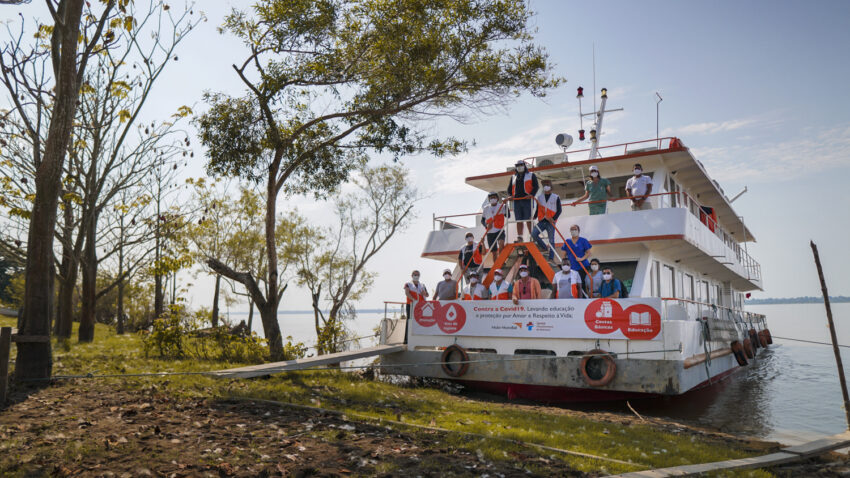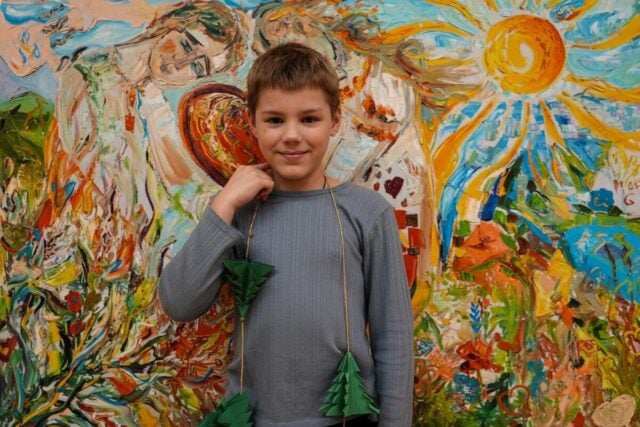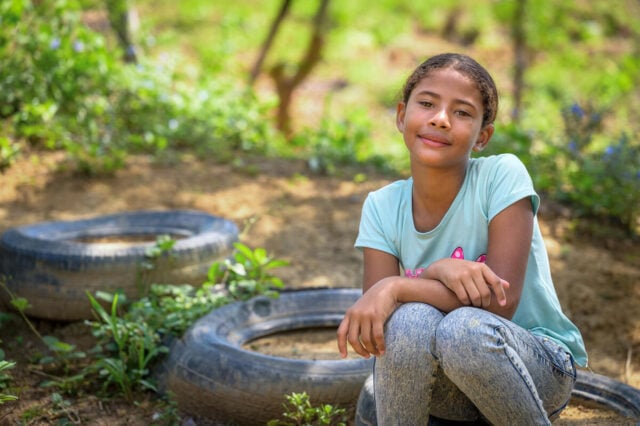The Amazon River teems with life. One of the longest rivers on earth, it travels west to east for more than 4,000 miles through eight South American countries. Its vast network of tributaries nourishes a complex and delicate ecosystem.
Among the millions of people who live here are Indigenous families who draw sustenance from the water that also brings outside travelers — and with them, the coronavirus. As COVID-19 cases increased along the Amazon, so did fears about loss of life. The speed with which the virus has traveled into remote communities was no match for the fastest vessels delivering supplies.
“We are seeing deaths increasing. There is a lot of suffering, a lot of pain and many tears,” says Pastor Francisco Chaves dos Santos of Presbyterian Church of Manaus in Manaus, Brazil. The church has partnered with World Vision for 15 years to help vulnerable communities. “We are seeing people in need like we have never seen them before.”
In Brazil, the pandemic has exacted its toll with more than 142,000 deaths and 4.7 million cases.
“If we don’t have a resource, to believe in God is all that remains for us,” says Lourdes, a 49-year-old mother living in São José, a riverside village two hours away from the nearest city. A diabetic, Lourdes needs medicine. And a foot injury during the pandemic has confined her to a hammock. Lourdes’ way out of her misery is prayer. “My God,” she pleaded. “I hope that one day, one day I will see a motorboat.”
Ferrying in hope is a team of healthcare workers and volunteers aboard a medical ship called the Solidarity, operated by World Vision.
Volunteers, medical crew become a healing force for families
The Solidarity has sailed to isolated communities to deliver food boxes, issue essential first-aid supplies, and provide medical care to 1,000 families in Brazil hit hard by the pandemic.
A doctor, two dentists, two nursing technicians, and a chief nurse are among the Solidarity’s crew. They have distributed 1,400 food boxes, 800 hygiene kits, 400 Tenderness Boxes, and 2,100 masks to families in Brazil.
“We are reaching populations in extreme vulnerability due to the limited access to health services, medicines, geographic isolation, and communication difficulties,” says Martha Yaneth Rodriguez, national director of World Vision in Brazil. Social isolation and increased economic vulnerability are putting children and youth at increased risk of abuse, violence, dropping out of school, and food insecurity, she says. It’s also more difficult for them to access health services.
For many children, it was their first health checkup.
“In the riverside community, people don’t see a dentist regularly, or many of them have never seen a dentist before. They suffer a lot from cavities, especially children,” says Djalison do Nascimento Rodrigues, a dentist aboard the Solidarity. “One of my most memorable experiences is when you can save that new patient’s teeth and restore their teeth. And in the end, they say, ‘Wow, doctor, thanks, I thought I was going to lose my teeth.’ This is gratifying for me.”
Pastor Francisco volunteered aboard the Solidarity. “We will never be the same again after this pandemic,” he says. “My wish is that we are better people and that soon we can say that we have made a difference through love. And, in this sense, the partnership with World Vision is fundamental, both to directly assist and to think together about how to care for children safely and carefully.”
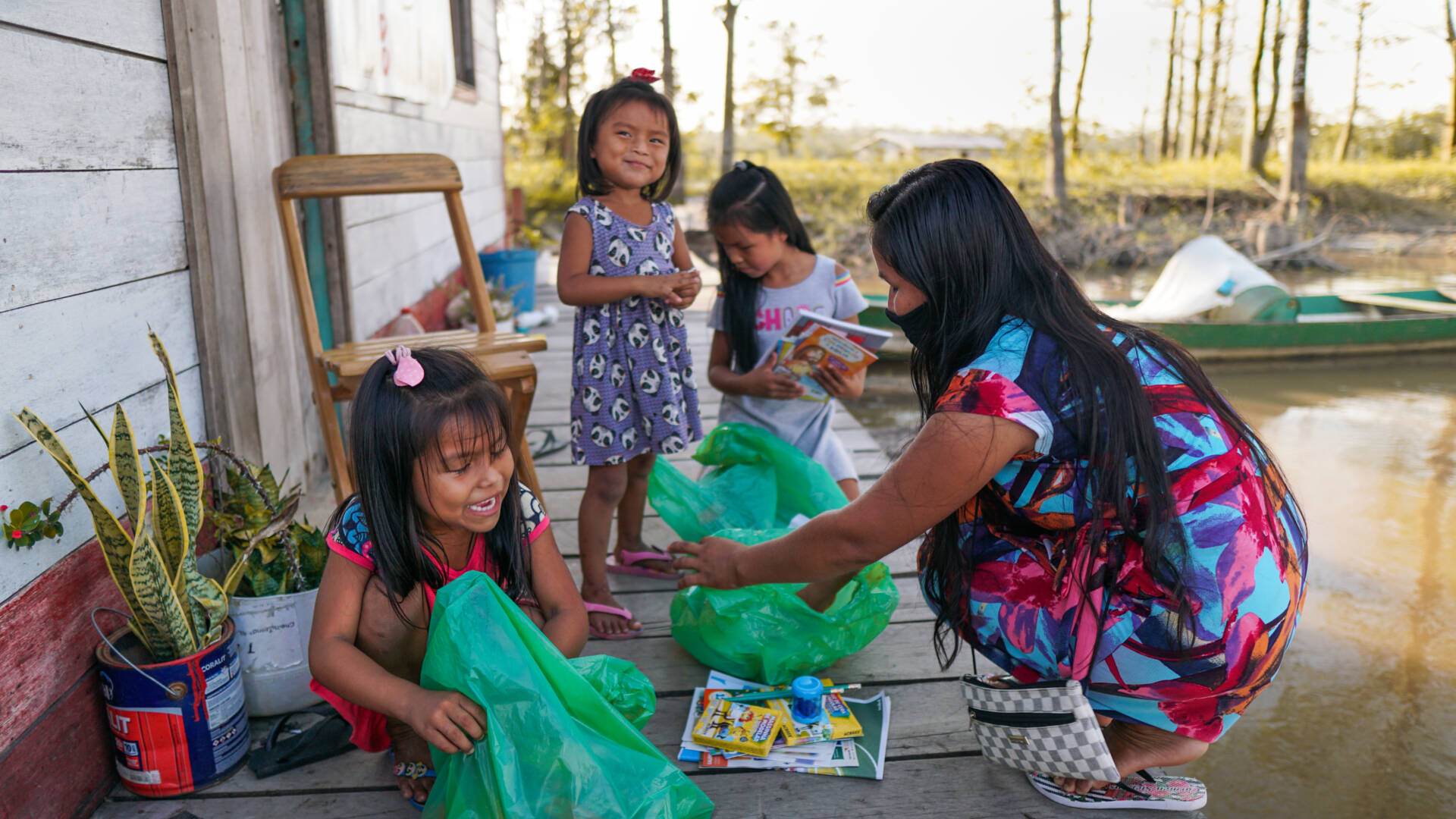
Donations, food, and smiles for Célia and her three daughters
Célia, a 29-year-old mother of three daughters ages 9, 6, and 3, says she could not express her gratitude enough for the aid her family received.
“For us, everything changed with the pandemic,” says Célia. She and her husband live on the outskirts of São José. They rely on crops for income. When the pandemic hit, they had no crops to plant for a future opportunity to reap a harvest.
“And if we don’t have money, we have nowhere to get it to have food for our daughters,” Célia says. “In times of difficulty, having something to eat is the number one priority of every riverside family. In those times … oral hygiene and children’s education ends up neglected.”
Célia’s daughters were elated to receive school supplies and dental hygiene essentials. The three sisters also learned how to care for their teeth. “It is a joy, it is an honor to welcome you into our community, bringing this help to us,” Célia says. “You arrived on time and at the right time, sent by God, because God knows the needs of each family. This help came at the right time for us.”
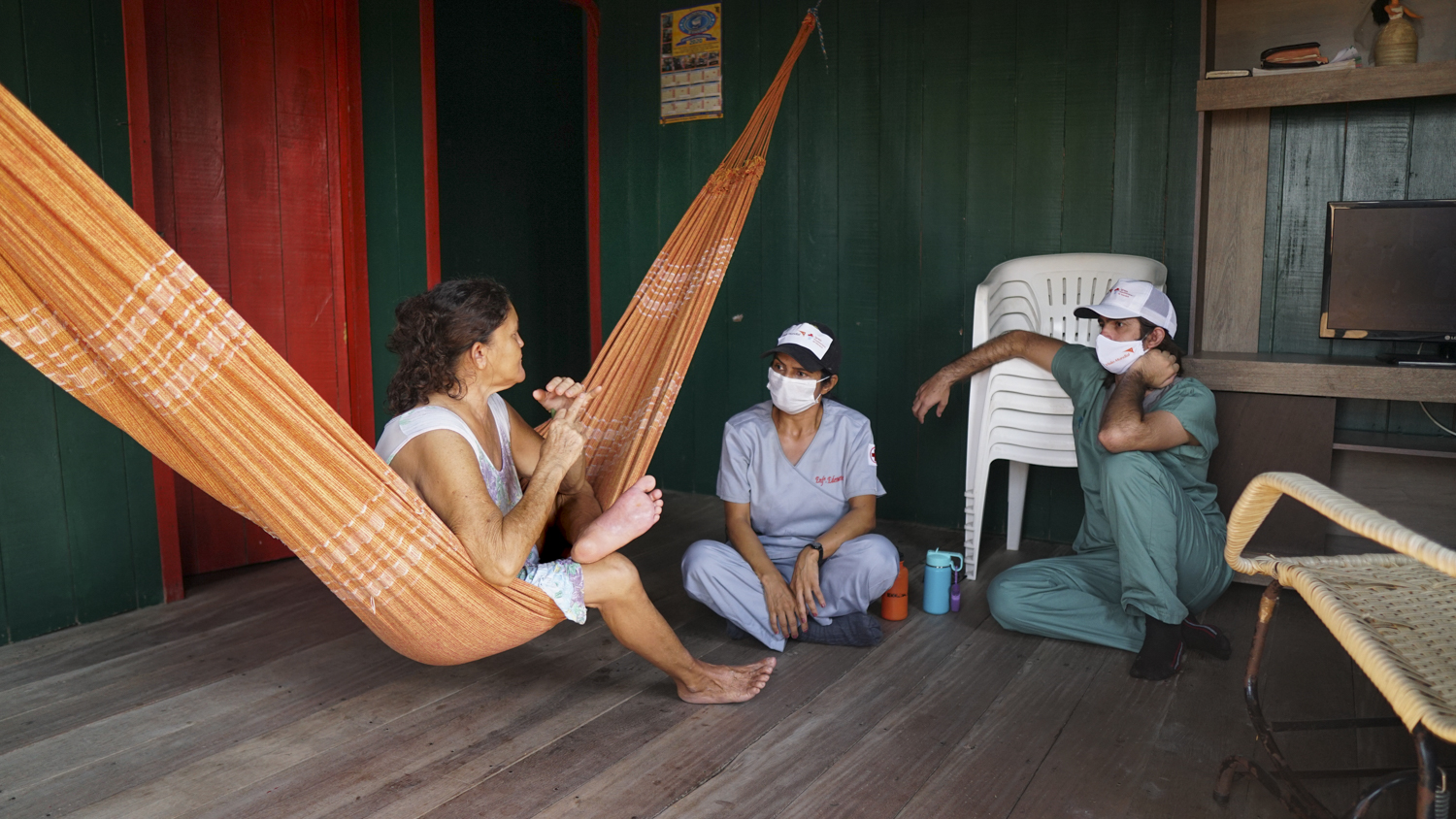
Lourdes says the Lord answered her prayers
When the medical team pulled ashore to her village near São José on August 2, the wound on Lourdes’ foot had worsened. It had stopped her from walking, and her pain had increased. The ship’s doctor and nurse treated Lourdes’ injuries and diabetes during a house call.
“I have been living here on this island for 25 years,” she says. “It is very good to live in here; the only thing, however, is with our health. There is no way to take us to the hospital,” she says. “I prayed and asked God that one day this boat would arrive in our community. And now you are here. I’m happy, really happy. I have faith in God that the next time you come — my foot will be cured.”
Others also praised the crew for their care.
Maria was treated for an ear infection. “I have to thank God first and then this team that came to me,” she says. “I’m better, much better. … Thank God.”
Hanna, one of the children, shared: “I like the Tenderness Box because it comes with sketchbooks and school supplies. It’s important because here, we have no money, and you come, and you give.”
“I thank you very much for the food basket that you delivered to each family, this is very important,” says Marcelo, a father. “We feel so loved.”
Sevil Omer of World Vision’s U.S. staff contributed to this article.
